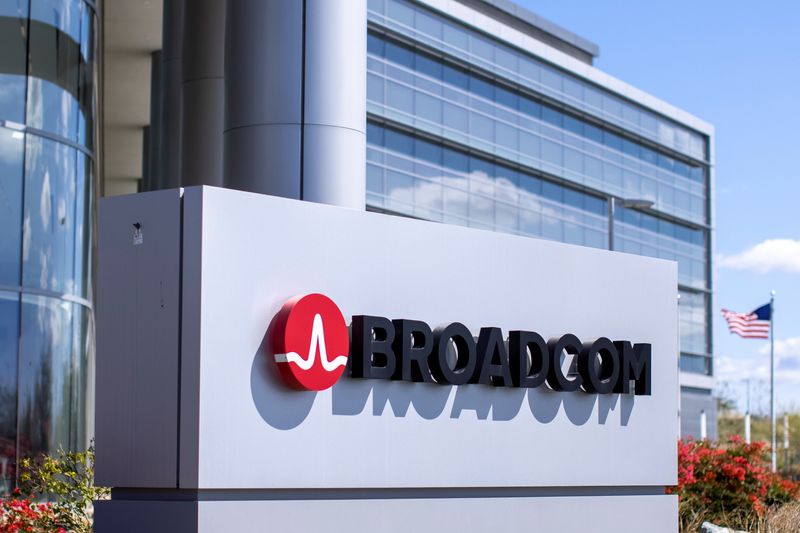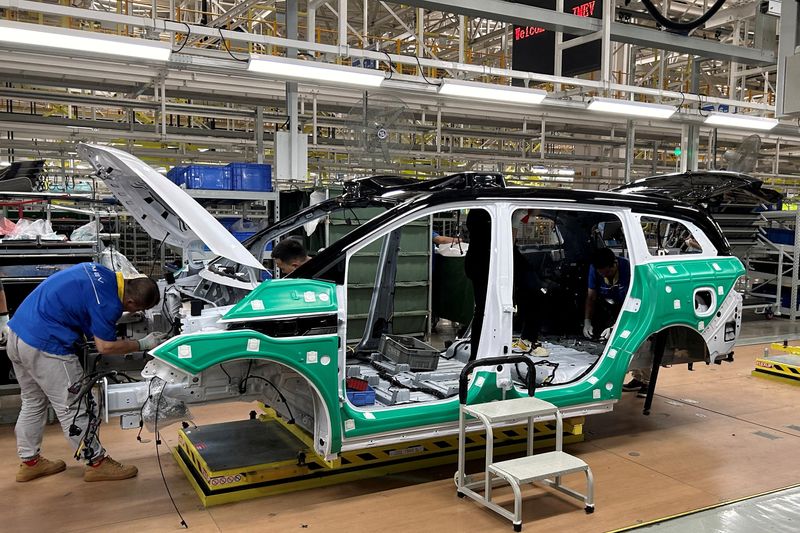By Zaheer Kachwala
(Reuters) -Chipmaker Broadcom (NASDAQ:AVGO) forecast fourth-quarter revenue slightly below Wall Street expectations on Thursday, hurt by sluggish spending in its broadband segment.
Despite a sharp rise in orders for its artificial intelligence chips, shares fell nearly 5% in extended trading.
California-based Broadcom expects revenue of around $14 billion, while analysts polled by LSEG expected $14.04 billion.
“We believe it’s unreasonable for investors to expect Broadcom to post Nvidia-type results and outlook,” Kinngai Chan, senior research analyst at Summit Insights, said.
Investor expectations for artificial intelligence-linked companies remain very high as they bet on AI chips and technology to drive significant growth.
However, AI-chip leader Nvidia (NASDAQ:NVDA)’s quarterly forecast fell short of sky-high investor expectations last week, failing to maintain its history of comfortably beating Wall Street targets.
On a post-earnings conference call, Broadcom executives reported that broadband revenue declined 49% in the reported quarter, while non-AI networking fell 41%, indicating a strong performance in the AI segments was offset by weak demand in other divisions.
Broadcom posted a loss of $1.88 billion on a GAAP basis, compared with a profit of $3.30 billion a year ago.
The net loss includes a one-time discrete non-cash tax provision of $4.5 billion, resulting from an intra-group transfer of certain intellectual property rights to the United States as part of a supply chain realignment.
The company raised its forecast for annual AI revenue to $12 billion, up from its earlier expectation of $11 billion, as it benefits from the demand for its custom chips and AI networking equipment.
It also beat analyst expectations for third-quarter revenue and adjusted profit.
The rise in its AI revenue forecast “clearly shows Broadcom is also benefiting from the industry AI adoption albeit less robustly compared to Nvidia,” Chan added.
Broadcom’s custom chips, which are used to move around large quantities of data, have seen increased orders from companies looking to streamline their data operations.

It also raised its full-year revenue forecast to $51.5 billion from its prior expectation of $51 billion.
The company’s infrastructure software revenue tripled in the third quarter, primarily due to VMware (NYSE:VMW)’s contribution, indicating its push into enterprise software was paying off.










